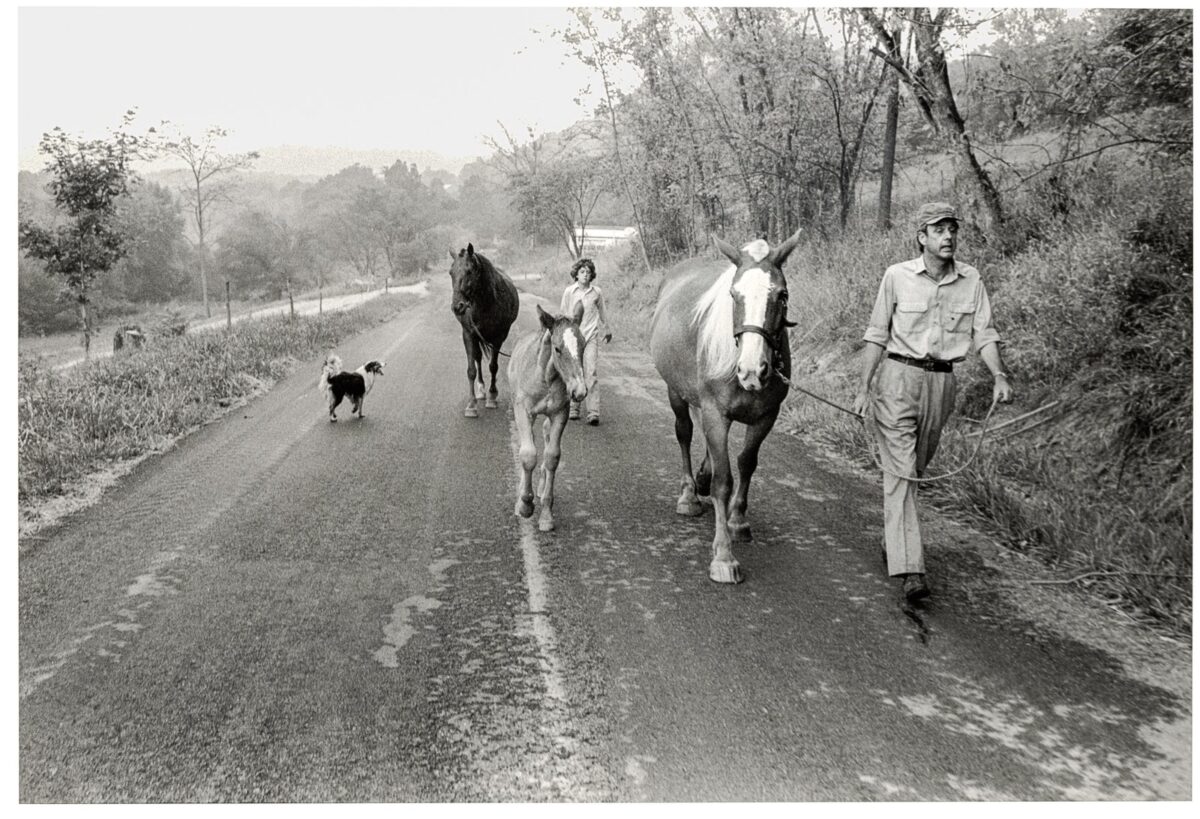

disaster capitalism – are you ready for what may come after 11/5?
While visiting with some friends down the road a few days ago the conversation turned to what potential scenarios might arise after the election on November 5. They’ve settled on the possibility that there may be no winner in the presidential election, that whichever side loses will call foul play on the other. They think that what we witnessed on January 6, 2021 may pale in comparison to the chaos that might ensue in the weeks following this coming November 5. One of them was present on J6 and has first hand knowledge of the subterfuge conducted there by the CIA. Accordingly, they’ve been spending the past few weeks getting ready for a worst case scenario after this upcoming election.
the inherent preparedness that comes with homesteading
In the years after the 1969 CIA MKUltra psyop known as the Manson murders, many Americans were purposefully left with a bad taste in their mouths about hippies. Consequently, many of my generation decided to move to the country to live a simpler life closer to the earth. That gave birth to the homestead movement. As I pointed out in this earlier post, I was a bit late to that party, not moving to the land until 1975.
Nearly fifty years, four farms and many mistakes later, I feel like I finally have a good handle on how to live a self sufficient homesteading lifestyle in these troubling times.
I didn’t come to this on my own. I’ve had some good teachers. Most of my dads family (including my dad) were farmers. My moms dad was an avid gardener, as was Mom. My dads mom was also an avid gardener (those grandparents lived next door). Like any good farmer, they were also jacks of all trades. Along with tending crops and livestock, those people were all adept at building things (including the house I which I grew up), fixing things, preserving food and engineering things.
By my mid 20’s I was reading the work of farmer/philosopher Wendell Berry. Not only was his philosophy about farming and life in general very down to earth, he was adept at painting pictures of this simple lifestyle with lyrical beauty. In fact, he inspired me to dabble in writing. A few years later I met Wes Jackson. Wes founded the Land Institute down the road a ways from where I grew up in Kansas. Here is a video of Wendell and Wes waxing eloquently about food, farming and society.
In 1980 a friend gave me the first two books published about Permaculture by Bill Mollison. In 1990 I picked up his tomes, Permaculture and Permaculture a Designers Manual. I devoured both of them.
Some years later I began following the work of Joel Salatin, who practices mob grazing and rotational farming.
Because of people like this and because the handwriting on the wall is now being write larger than ever, it comes as no surprise that the homesteading movement is burgeoning.
I should acknowledge a more recent take on surviving hard times known as prepping. Although there are many overlaps between homesteading and prepping, there are also some distinctions between the two. One distinction is that preppers tend to focus more on stockpiling food and supplies, whereas homesteaders seek to be self sufficient – free from dependency on the centralized corporatocracy – by building a lifestyle that produces necessities for the multi-generational long haul. To be sure, there are gradients in both.
Perhaps the main distinction is, there are few preppers who will know who any of those previously mentioned people are, but there are many homesteaders who will be familiar with all of those people. If you consider yourself a prepper and you know who those people are, good for you! If you’re homesteader and you don’t know who those people are, you will want to learn about them.
As I’ve mentioned in recent posts, I loosely follow a number of different homesteaders on YouTube. Most of them have come to homesteading more recently, having been doing so for less than 10 years. And yes, it’s painful to watch them make the same mistakes I made.
Many of them are in Western North Carolina, some of them having moved there due to being inspired by YouTube homesteader Justin Rhodes. I linked to his videos of their ordeal during the recent flooding there in this post.
back to survival basics
What if things go south during the weeks after the election? What if rioting triggered by deep state subterfuge causes the power grid to go down? What if more storms or earthquakes are generated to increase taxpayer cash flow to disaster capitalists (see upcoming post)? What if Trump once again occupies the White House and another plandemic is instigated to bring him and everything else down, so the rich can again usurp vast amounts of lower and middle class wealth? As we’ve witnessed in the regions hit by Helene and Milton, the loss of power is always a big aftermath problem. That means no water, no food and no fuel. Let’s consider all of those essentials and some simple things we can do to prepare.
It’s helpful to keep in mind that in every case, any solution offered by government agencies or large nonprofits will come with strings attached to corporate money grubbers. If we want to prevent disaster capitalists from stealing lower and middle class wealth, we need to stop being dependent on agencies that work for the predatory elite – agencies like FEMA, the DoT, the DoC, the DoE, HHS and government funded nonprofits like the Red Cross and as I pointed out here, Biden’s favorite go-to source for hand-outs to illegal migrants, Catholic Charities. All of their solutions feed the corporate beast – they take our tax dollars and give them to corporations to provide “aid”. Like all gubberment agencies and large nonprofits, they’ve been captured by the top down, centralized corporations they work with. This ensures that those corporations are able to maximize their profits from the misery of folks affected by disasters. I’ll go into this some more in the next post.
water
Keep in mind while you read this water section that plastic water bottles represent the epitome of centralized, corporate control and hence, pollution.
Anyone in decent health can go without food for a week or two, maybe even three. Most can only survive without water for about 3 days. Fortunately, finding water in most parts of the world is relatively easy (unless you live in a brittle environment like me).
As I pointed out in the previous post, plastic water bottles are the primary source of the credit cards worth of plastic polymers that most Westerners consume every week. In spite of the numerous, toxic, endocrine disrupting effects of plastic that I listed in that post, I received some push-back regarding my questions about the wisdom of shipping thousands of pallets of plastic bottled water into storm affected areas already suffering from massive polymer releases into the environment from the storms. Because that post ran long, I opted to not go into more detail about an obvious solution – water filters. In the case of the affected areas of Western NC, Eastern Tennessee, Georgia and Florida, most have abundant surface water. This makes the use of hand operated water filters a great option.
I have a small hand pumped water filter that I’ve been using on backpacking trips for over 40 years. On numerous occasions I’ve used it to pump some very disgusting looking water for drinking and cooking. I never got sick. Granted, that pump is not capable of cleaning up water contaminated with chemicals, but more expensive hand operated pumps are. I should point out that most of those pumps would be too bulky for backpacking.
However, if the only concern is biological contaminates, the $25 pump in the link below can clean 100,000 gallons of water before the filter needs to be changed. That’s far cheaper than buying the same amount of bottled water. That pump also represents a tiny fraction of the energy required to purify and deliver 100,000 gallons of bottled water. It also represents a tiny fraction of the pollution generated by making and delivering 400,000 1-quart plastic bottles though the corporate supply chain and on to disaster zones.
As I said in the previous post, you can give a man a fish every day to keep him fed or you can teach him to fish. Right now, many storm survivors are dependent on water bottles being delivered to them from all over the country. Why not set them free by giving them a hand operated water filter they can use for the rest of their life? It’s a fraction of the cost of delivering water, a fraction of the environmental impact and a fraction of the toxic burden for the user.
True, most cheap hand operated filters will not remove chemicals. And even the most expensive filters cannot remove all traces of chemicals in heavily contaminated water. However, by now most of the streams and rivers in the storm affected region are running fairly clean and will no longer be heavily contaminated, unless they’re downstream of ongoing, heavy contamination. A good quality water filter will remove most of the remaining contaminates, biological and chemical. In the long run, even those more expensive options will be far cheaper, they’ll have much less environmental impact and they’ll be less toxic to the user than 400,000 bottles of polymer laden water.
Here are some options. A search will reveal even better ones than those listed here.
https://waterfilterguru.com/best-portable-water-filters/
Personally, if I was living in Western NC and had lost my house but still had my land, and my only options were to either become dependent on someone delivering energy intensive (coming from who knows where), toxic bottled water every week, or become self sufficient by drinking water filtered with a good quality filter from a nearby clean running stream, I wouldn’t hesitate to take the filtered stream water. I’ve learned too much about the polymer contaminates in plastic water bottles to trust them.
wells
Having put in 3 wells on 3 different farms and drinking water from them for the past 45 years, I have a little experience with wells. Wells in some of the questionable flood affected areas may be fine or… not. A lot depends on the percolate strata. Some strata will filter the water very well, some will not. Wells can be tested to determine safety. Generally speaking, wells that are upstream from plastic debris fields and other pollution sources should be fine.
Tanker trucks capable of carrying potable water could be filled with well water from up-stream farm wells. Those trucks can then deliver that water to remote communities or rural areas that are still without power. (That might already be happening.)
If I lived in the flood impacted region of Western NC and I was upstream from toxic debris fields and I had a solar powered well, I would now be sharing my well water with all of my neighbors who are still without power.
Regular readers will know that I’ve lived on solar power since 1985. During that time all of my water needs (including irrigation, which accounts for about 90% of my water use) have been met with water pumped from my well(s) with solar power. Solar powered wells are a superb, decentralized alternative to the top-down, socialist, corporate-controlled power and water grid.
Where I live, summer monsoon storms occasionally take down the local power grid for a few hours or a few days at a time. Because I’m on solar power, I never notice it. I’m always surprised when I go into town and learn the power has been out.
I’ll cover power issues in more detail shortly.
emergency shelter – tents
I have a love/hate relationship with tents. I love their lightness, their ease of use, their portable nature, their weather resistance. I hate the fact that most are made with toxic, endocrine disrupting polymer materials. Anyone who has been inside a backpacking tent on a hot sunny day can attest to the smell of toxic polymers that pervades the air inside the tent. What is being smelled are the polymer molecules and flame retardant VOC’s out-gassing from the materials. They can wreck havoc in the brain.
There is some good news in the tent market. Because most backpackers are also health conscious people who like to eat well and avoid toxins, there has been a recent move toward making tents that are much less toxic. These tents will have no flame retardants (a terrible endocrine disrupter), they’ll be colored with water based dyes (vs chemical) and they’ll be made with chemical-free fabrics.
The poles used to support tents are often made using problematic phosphoric or nitric acid. Although aluminum tent poles come with their own set of problems, they’re generally less problematic than acidic ones.
Most tents are waterproofed with polyethylene polymers. Silicone is a safer alternative.
Since we’re talking about fairly large tents that can serve as emergency shelters for a small family during hard times, all of the tents I recommend here will be too big to use as backpacking tents.
If the power or water fails, hotels and motels will be closed. This was the case during the flooding in Ashland. Some folks sought refuge in hotels, only to be kicked out when the toilets would no longer flush and the lights no longer worked. They had to sleep in their cars… if they still had one. A good tent can be taken a short distance from a disaster zone and set up as temporary shelter.
What initially got me to thinking about tents was seeing all of the folks who lost their houses to flooding in NC and the tornadoes and hurricanes in Florida, who still have their property. All of those folks could set up a tent on their land before winter sets in.
Yes, FEMA may be promising help, but as we’ve learned from previous disasters, that help may never come. As I pointed out in this earlier post, the Biden/Harris administration directed FEMA to spend most of its budget housing illegal aliens in luxury hotels. And if aid does come, we can be sure that it will have some unsavory strings attached (more on that in the next post).
Here are some tent options.
https://theecoedit.co/non-toxic-camping-tents/
https://fairtradefinder.com/blog/non-toxic-tents-without-flame-retardants/
Ultimately, the best quick shelter option would be to build a debt-free, primitive shelter, but that’ll have to be a whole ‘nuther series of posts.
power – the ultimate centralized control mechanism
We are now about a month out from hurricane Helene. Some of the hardest hit regions of Western NC, Eastern Tennessee and Florida are still without power. Many of the more rural areas may be looking at several more weeks before power returns. This is the problem with being dependent on a centralized, top-down socialist corporatocracy – you are at their mercy. The Biden administration has provided $13 billion to upgrade the centralized, fascist boondoggle known as the power grid. Additionally, power companies are now getting other types of taxpayer subsidies to repair storm damage. In spite of all the socialized government aid, when the power does come back on in the storm affected areas, we can expect that investor owned corporations like Duke Energy and Southern Co will raise rates to ‘cover the cost of repairs’. The quarterly shareholders statement must show a profit.
Folks, this is how the predatory elites rob us, coming and going. They love disaster capitalism.
Like the toxic water bottles that many are now bringing into storm impacted regions by the truckload, portable generators have also been coming into storm impacted regions by the truckload. In the way that plastic water bottles keep people dependent on a highly profitable, centralized, top down, corporate solution, generators keep people dependent on that ultimate, centralized corporate bully… big oil.
Generators are fine as long as there is fuel to run them. The situation in some of the areas affected by Helene and Milton is that even gas stations were down for a time. Most generators will run for less than a day on a tank of gas. If your car is low on gas, or your road has been washed out, or there are no gas stations open and your generator needs gas, you will have no power. This means you have just been shut down by the corporate welfare system known as American capitalism. You are left up the creek without a paddle while the corporations will get whatever government help they need to show a profit on the next quarterly shareholders statement.
The amount of food in freezers that has been lost due to this monopolized, public/private (facsist) power grid should be a crime.
side bar
Although I’ve never consented to being governed, those who do might want to consider a government that understands that strength does not lie in centralized control structures, but instead lies in local, home based control structures. Currently, only the Libertarian Party is presenting a platform that comes close to that. https://www.lp.org/platform/
Yes, a generator can get one through a short power outage, but in the event that power outage is widespread and lasts for several months or more, most generators will be worthless. Even those prepared with high end generators can find themselves in trouble. Justin Rhodes (see his pertinent storm videos here) has a very large diesel powered generator as a backup to his dependency on the grid. He had the foresight to have it serviced and to stock up on diesel fuel just before the rains began. His power was knocked out early on. Some days later, by the time he was low on fuel, a few gas stations in Asheville had opened, the roads had been sufficiently cleared and he was able to get into town to get more fuel for his generator. As of a week ago, his family had been without grid power for three weeks. He has not yet reported the power being back on. It would be interesting to know how much money he has spent on pricey diesel fuel to keep his refrigerator and 5 freezers (full of his own grass fed meat) running. By now that meat – which originally only cost him the grass on his farm – must be worth a small fortune. For the cost of his high end generator and all the fuel he has run through it, he could have put in a solar system that would have allowed him to completely sever the umbilical cord that now has him dependent on the centralized corporatocracy.
Why am I biased towards solar power? Because it’s currently one of the best options that allows us to cut ties to the corporate beast. I have two chest freezers full of meat and produce from my farm and a refrigerator full of meat and produce from my farm. All have been running on solar power for many years (a few for decades). I have no fossil fueled farm equipment so my food production is not dependent on big oil or the fascist grid. (For the record, I don’t use lithium batteries, I use recyclable batteries.) None of that system would have been affected by the flooding now affecting much of the Southeast (and now Roswell, NM – more on that coming up).
Let’s hope the election goes smoothly, that everyone maintains a level of civility. Most of all, let’s pray deep state actors fail in any attempt to subvert the masses into violent revolution as they tried to do on J6.
Look for the next post in this series soon.
Be free.






0 Comments